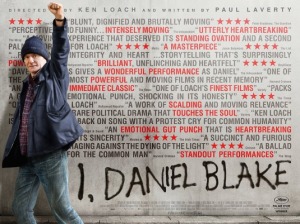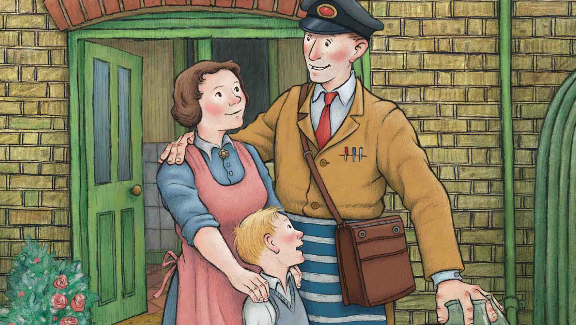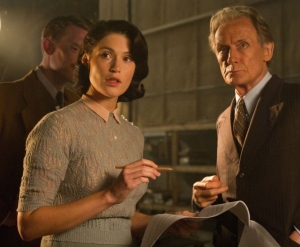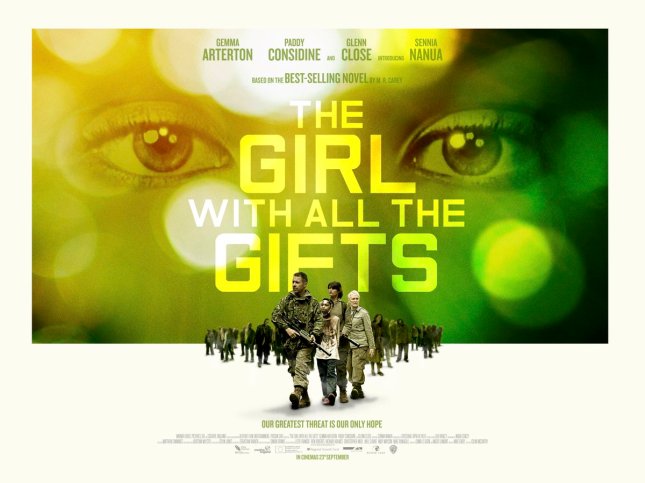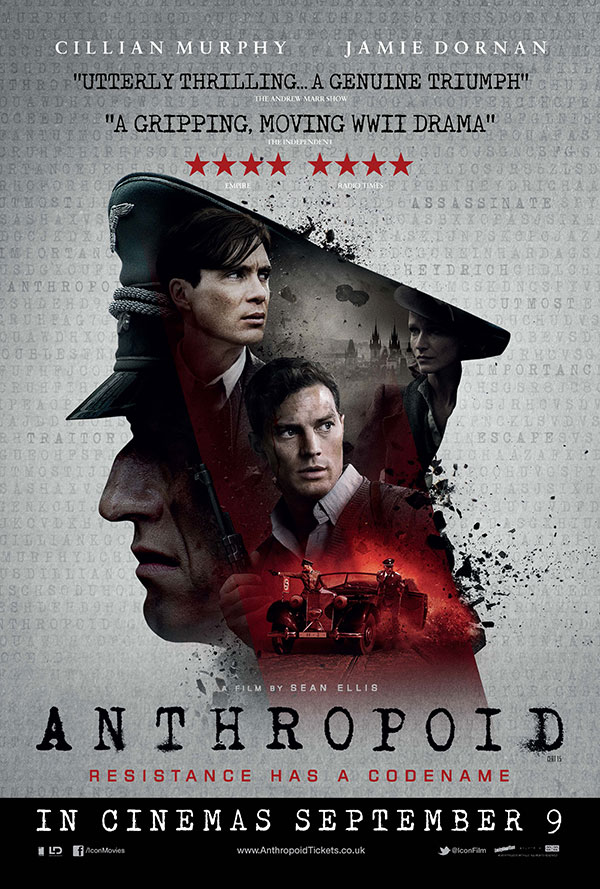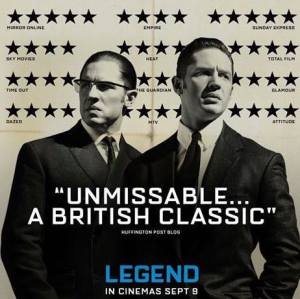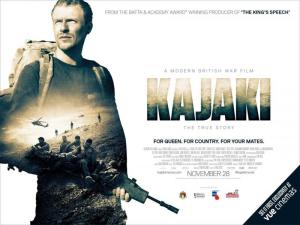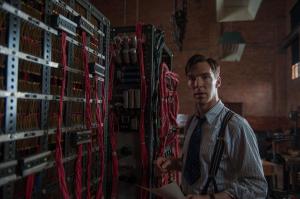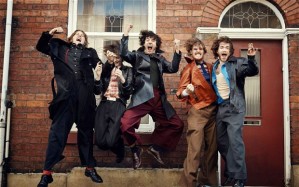Last week was a bit of a war week for me; I went to see three films that all dealt with war in different ways, spent another morning with a couple of military doctors (one of whom was organising the deployment to Sierra Leone to combat ebola: be afraid, be very afraid), and on Saturday I went to a conflict zone: The Den, to watch Millwall Vs Wolves.
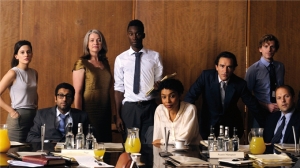
The entire cast of War Book
I started the week by seeing War Book, a low budget, high concept British film that uses a handful of locations and a cast of nine. They are civil servants and a government minister acting out a nuclear war scenario. Internal politics, the personal lives of those taking part and the moral questions of the issue all come into play. The film-makers said they didn’t want it to be a polemic, but you could see where they were coming from. There is one subplot that I didn’t feel was fleshed out enough, but it is a worthy, worthwhile film.
War Book is a film that made me feel old. Ben Chaplin, who I first came across as a young twenty something in Game On, plays a 40 something lecherous spin doctor. Really though, it’s as if his Game On character has got over his agoraphobia and become a government advisor. The bloke who played Nathan Barley plays a cartoonish Tory minister – is he old enough, I thought? Then I remembered the likes of Aiden Burley, a cartoonish Tory MP, and realised yes, he is. Who is this middle aged woman who looks like Theresa May? Oh, it’s Kerry Fox. When did she get old? Oh fuck, Shallow Grave is more than twenty years old, isn’t it? When did I get old?
The standout performance is from Sophie Okonedo, channelling Oona King. She gives a great speech about John Winant, a man I had never heard of and who was the US ambassador to Britain after Joseph Kennedy had left in disgrace because of his pro appeasement sympathies. Winant, by all accounts, did a brilliant job, but when Truman became President he returned to America, his marriage ended and, on the day his book about his time in London was published, she killed himself. I hate bullshit “inspirational/motivational” quotes that idiots share on facebook, but Okonedo quotes Winant’s epitaph, which is worth repeating here in full:
“Doing the day’s work day by day, doing a little, adding a little, broadening our bases wanting not only for ourselves but for others also, a fairer chance for all people everywhere. Forever moving forward, always remembering that it is the things of the spirit that in the end prevail. That caring counts and that where there is no vision the people perish. That hope and faith count and that without charity, there can be nothing good. That having dared to live dangerously, and in believing in the inherent goodness of man, we can stride forward into the unknown with growing confidence.”
I disagreed with the film’s politics (I’m far too hawkish for nuclear disarmament), but it was well made, and shows what you can do with a few locations and not much money (I asked the director afterwards how much it cost, and he said he couldn’t tell me, but I guess it was less than £200,000). The setting and the low budget do sometimes make you think it would be the sort of thing Channel Four should make, probably followed by a discussion with a former cabinet minister, a moral philosopher and a retired General. Well worth seeing, though.
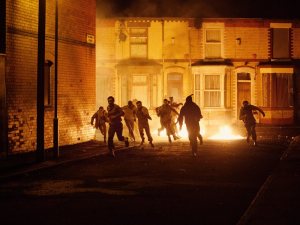
The Den on Saturday, or Belfast in 1971
Confusion, collusion, pub bombings, bombs going off early, dead kids, summary executions. It must be Northern Ireland. ’71 is the sort of film you take your mate’s girlfriend to see when he’s on a work trip to Hong Kong.
It is, alongside Alan Clarke’s Elephant (which one moment reminded me of) and Steve McQueen’s Hunger, set ten years after ’71, and which also references Elephant, one of the best films about what we euphemistically call “The Troubles”. Paul Greengrass’s Bloody Sunday, made for television, would be up there, too.
A young soldier becomes separated from the rest of his unit while the RUC raid a house in Belfast, he flees across the city, encountering friendly Loyalists, two branches (Official and Provisional) of the IRA, and a shadowy undercover army unit do deals with all sides.
There are some genuinely shocking, bloody moments and it is not an easy watch, but it is a good one. There is no reason why there could not be a sequel – ’81, set during the hunger strikes, the soldiers older, wiser, more cynical, and a third film, ’91, to complete the trilogy, with squaddies fresh from the Gulf War returning to the streets of Northern Ireland. I definitely want to see more from the director Yann Demange, who makes a very impressive debut here after working. Probably one of the best British films of the year.

Bella Swan goes to Guantanamo Bay
I liked Kristen Stewart in her small role in Into The Wild, and it’s not her fault that the material of the Twilight films was so bad. In Camp X Ray she plays a guard at Camp X Ray in Guantanamo Bay, Cuba. There really isn’t much to say about the film, and apart from an opening sequence of a detainee being rendered that could have been the start of a great Kathryn Bigelow or Paul Greengrass film, of a John Le Carre novel, it isn’t very good. Instead it becomes a hackneyed film where Stewart builds a friendship with a detainee and her fellow guards are thick headed jocks. Oh look, he’s a detainee at Gitmo but he likes Harry Potter books, aren’t we all the same inside? Give me fucking strength. Give me a fucking film about Khalid Sheikh Mohammed, or the Battle of Qala-i-Janghi, and showing what the people who ended up in Camp X Ray did to Johnny Micheal Spann. I should have stayed for a fourth gin and tonic with my mate instead of going to see it. There is a great film to be made about “enemy combatants” being detained without trial, but this isn’t it. It’s not even the best film set at Guantanamo Bay. I’m sure Guardian readers will love it.
Great films about the wars of the 21st Century are hard to find. I like The Hurt Locker, Zero Dark Thirty, United 93 (about war because it shows the first battle of the War on Terror), Syriana, The Kingdom, Lone Survivor and Battle For Haditha. Four of those seven films are made by two directors (Kathryn Bigelow and Peter Berg). As an enthusiast for both war and films, I want to see more thought going into films about the events that history will remember the first decade of the 2st Century for.
